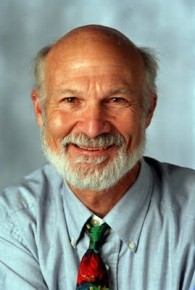The end of American Protestantism…

Theologian Stanley Hauerwas is a contrarian and a provocateur. His pacifism puts him at odds with most of the Christian tradition. His pro-life position puts him at odds with many, if not most, of those in his own theological tradition, postliberalism. His reputation as “contemporary theology’s foremost intellectual provocateur” will undoubtedly be enhanced by a recent article in which he argued that American Protestantism is coming to an end.
“We are beginning to see the loss of confidence by Protestants in their ability to sustain themselves in America,” according to Hauerwas. “Protestant churches in America [have] lost the ability to maintain the disciplines necessary to sustain a people capable of being an alternative to the world.”
More Americans may go to church than their counterparts in Europe, but the churches to which they go do little to challenge the secular presumptions that form their lives or the lives of the churches to which they go. For the church is assumed to exist to reinforce the presumption that those that come to church have done so freely. The church’s primary function, therefore, is to legitimate and sustain the presumption that America represents what all people would want to be if they had the benefit of American education and money.
Let me try to put this in a different register. America is the exemplification of what I call the project of modernity. That project is the attempt to produce a people who believe that they should have no story except the story that they choose when they had no story. That is what Americans mean by “freedom.” The institutions that constitute the disciplinary forms of that project are liberal democracy and capitalism. …
The story that you should have no story except the story you choose when you had no story produces people who say things such as, “I believe Jesus is Lord – but that’s just my personal opinion.” The grammar of this kind of avowal obviously reveals a superficial person. But such people are the kind many think crucial to sustain democracy. For such a people are necessary in order to avoid the conflicts that otherwise might undermine the order, which is confused with peace, necessary to sustain a society that shares no goods in common other than the belief that there are no goods in common.
So an allegedly democratic society that styles itself as one made up of people of strong conviction in fact becomes the most conformist of social orders, because of the necessity to avoid conflicts that cannot be resolved.
Such a view has devastating effects on the church. For the church does not believe that you should have no story except the story you choose when you had no story. Rather the church believes that we are creatures of a good God who has storied us through engrafting us to the people of Israel through the life, death, and resurrection of Jesus of Nazareth. Christians do not believe we get to choose our story, but rather we discover that God has called us to participate in a story not of our own making. That is why we are called into the church as well as why we are called, “Christian.” A church so formed cannot help but be a challenge to a social order built on the contrary presumption that I get to make my life up. …
In sum, the American church has “failed to make clear that America’s god is not the God we worship as Christians.” Thus, the very difficult task facing the Church today is how to challenge the reigning ethos that sustains both America and American Protestantism.
A word of encouragement and a bit of caution: Stanley Hauerwas’ article is well worth a close read, even several rereadings. But not all of the article relates to the ways Protestantism has accommodated itself to the American ethos. Hauerwas is known for his rambling and often repetitious style, both of which make this article a bit difficult to follow. Even so, a careful reading will provide valuable insights into critical ways the Church has been taken captive by American culture.
Stanley Hauerwas is Gilbert T. Rowe Professor of Theological Ethics at Duke University. His most recent books are War and the American Difference: Theological Reflections on Violence and National Identity and Hannah’s Child: A Theologian’s Memoir. “The End of American Protestantism” can be found here.


 September 9, 2013
September 9, 2013 







Comments are closed.